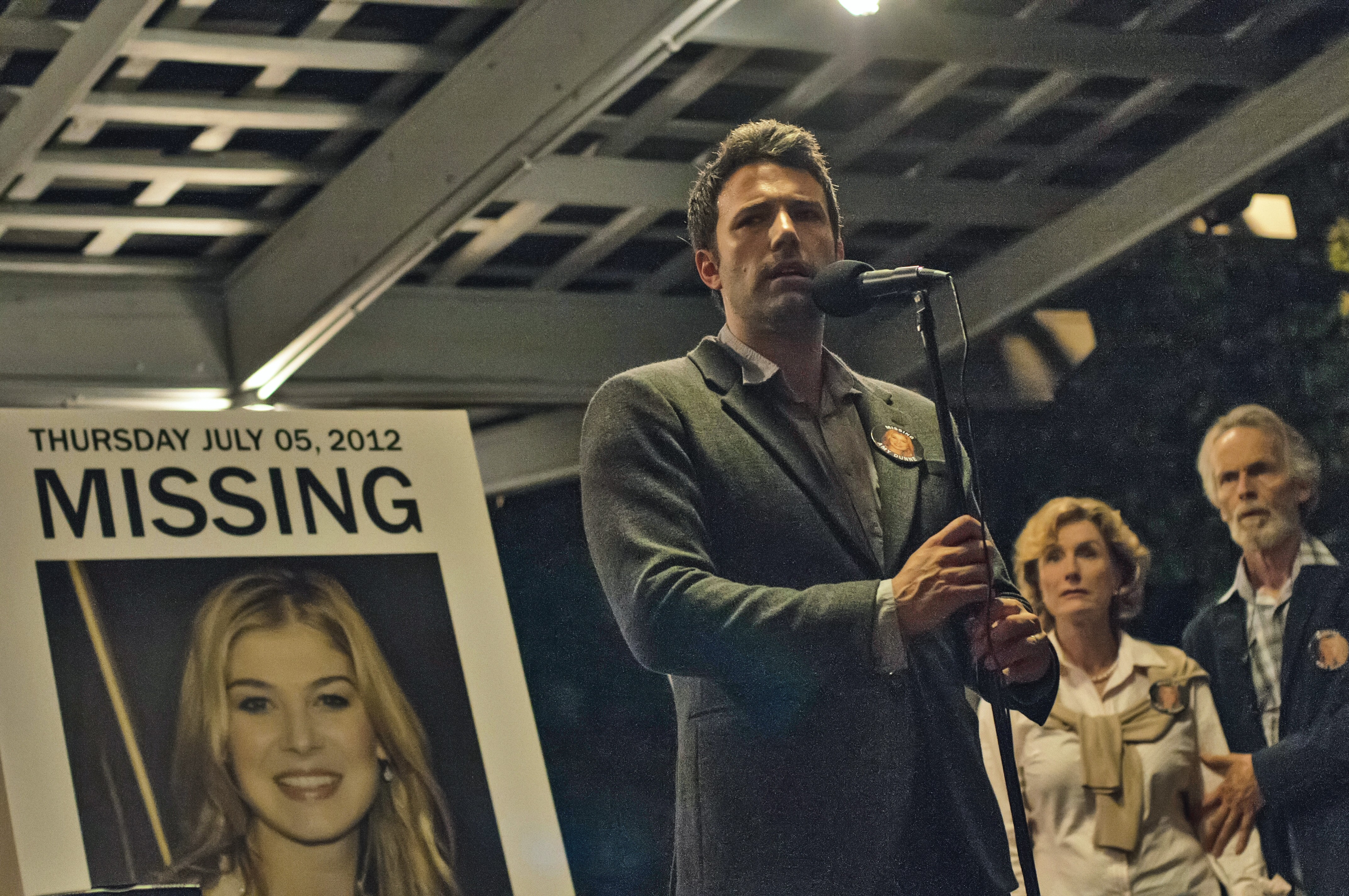 (Because Gone Girl has been out and available for some time now, I will be talking spoilers in this review. Also, because this review skews toward a broader discussion of genre, I am including it as a “review” and a “deep end” piece)
(Because Gone Girl has been out and available for some time now, I will be talking spoilers in this review. Also, because this review skews toward a broader discussion of genre, I am including it as a “review” and a “deep end” piece)
Six months after its release, I have finally gotten around to watching David Fincher’s Gone Girl. During that time, it had been nigh-impossible to avoid spoilers altogether (Neil Patrick Harris even spoiled his own death during the Oscars), but I did my best, and it ultimately paid off. Much of Gone Girl’s success comes not only from its twists and turns, but from how surprisingly early they come. Each major twist reshapes the narrative, as well as the genre.
The first half of Gone Girl, which contains most of what the trailers pull from, is very much a murder mystery. Even though we’re following Ben Affleck’s Nick Dunne, we are given plenty of reason to suspect that he killed his wife. There’s his oddly casual reaction to her disappearance, his inability to truly mourn, and as we uncover new evidence, his credit card debt, pre-nuptial agreement (in his wife Amy’s favor), an affair, and an apparent history of domestic violence. Meanwhile, in case Nick’s guilt seems too obvious (and it does), there are other possible killers, including Amy’s creepy ex-boyfriend Desi (played by Neil Patrick Harris).
It’s a superbly-paced hour of film, always giving the characters room to breathe and introducing new evidence at the perfect moments to propel the narrative. This is why it’s somewhat surprising when, with a full hour and a half to go, Gone Girl reveals exactly what happened to Amy: she faked her own death and went out of her way to frame her husband. Since this reveal dismantles the narrative engine that has driven the film up to this point, it finds a new engine: a cat and mouse game between two skilled manipulators who know exactly what the other one is up to.
As a thriller, Gone Girl is equally successful. Just enough is happening in Amy’s life for her story to stay dynamic without becoming a series of mis-adventures. Meanwhile, Tyler Perry is excellent (a phrase I have never before written) as Dunne’s lawyer, coaching him on how to play both the legal system and the press to win the case. This segment culminates with Amy stuck in yet another relationship (physically, in this case), and her solution is grisly, brilliant, and admittedly a bit unbelievable.
Amy’s murder of Desi and reappearance at home triggers the final segment of the film. This time, genre is a bit trickier to pin down. You could call it a domestic drama, but for me the ending felt more like a dark comedy. Amy’s continued insistence that everything is fine now, even in the face of Nick’s obvious fear and stated discomfort with the situation, is hilarious in and of itself.
Meanwhile, the thematic irony starts to shine through. In the beginning of Gone Girl’s second act, Amy has a voice-over explaining her hatred of the “cool girl,” and how she felt like she had to be something else in order to maintain her relationship with Nick. Here, at the end, she has improvised her way into a situation in which Nick is forced into the role of her choosing, in a much more overt way. She is an extraordinary hypocrite, somebody offended by feeling trapped in societal roles who has no qualms with personally trapping somebody else, as long as it makes her happy.
The final segment also serves as a satire on our modern conception of “truth.” By this point, the movie has completely torn down the idea of truth in the media via Ellen Abbott, its Nancy Grace surrogate. By the end, Nick has been both the most hated man alive as well as a sympathetic hero, depending on how his plight was colored by the media. However, Gone Girl is just as critical of the legal system. Detective Boney, Margo Dunne, and Tanner Bolt (Nick’s lawyer) are fully aware by the end what the actual truth is, but have no way to prove it in a court of law. So there it stands: a handful of people know the “real” truth, but the rest of the world knows another. The systems that are meant to determine the truth have failed, and it is instead in the hands of people primarily interested in shaping a narrative.
Whether it is a dark comedy, satire, horror story, mystery, or thriller, Gone Girl is captivating and unique. David Fincher has proven that his style can mesh with nearly any genre. It will be interesting to see if he pivots just as strongly with his next film.